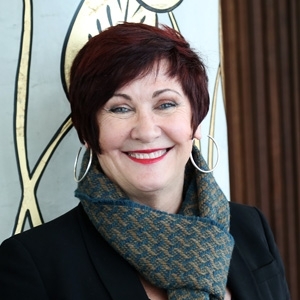Finding re-enchantment through Australian writers
Research news
All keen readers know that great novels or poems can transport them to different worlds, larger than their own.
In a time when traditional religions are losing influence, Deakin’s Professor of Literature Lyn Mc Credden argues that – while not always religious in the traditional sense – great writers can provide readers with a sense of meaning and ways of approaching the “sacred.”
Professor Mc Credden is currently researching some of Australia’s best writers, including the hugely popular novelist Tim Winton and Australia’s Goth icon Nick Cave, who grew up in country Victoria.
Prof Mc Credden is currently working on two major research projects, the first covering the legacy of Tim Winton (funded by an Australian Research Council Discovery Grant), and the second focussing on how Australian authors express the sacred in literature, which she calls “the re-enchantment of the world”.
“Both Tim Winton and Nick Cave challenge the typical Australian reticence to religion, to consider spiritual or sacred issues,” she said. “Using different languages, they both show they are not afraid or ashamed to open up about all areas of their lives, and the ways in which humans hunger for the sacred.”
Prof Mc Credden argues that beyond his pop star status, Cave is one of Australia’s most creative and spiritual poets, with lyrics full of religious exploration, doubt and a longing to believe.
“Compared to traditional poetry, songwriters tell stories in a more direct way – and Cave’s go to the gut. His lyrics are poetry in a different form, less obscure than traditional poetry, but extremely powerful,” she said.
“Cave questions the traditional notion of the sacred and the language he uses can connect us with the deepest of ideas, feelings and beliefs.”
“He is analytical and a seeker/quester. His lyrics are often about injustice and explore the nexus between sexuality and spirituality, such as the songs ‘Brompton Oratory’ or ‘Into My Arms.’ Many of his lyrics cut into the puritanical, insular aspects of some organised religions and attempt to bring people together.”
Professor Mc Credden wrote an 8000-word essay on the “carnal theology” of Cave’s writing and was delighted when she received a phone call from Nick Cave himself earlier this year asking if he could republish part of her essay in his next album, “Nick Cave and The Bad Seeds,” which is due to be launched in the U.S, in October.
As to the strong popularity of Tim Winton, Prof Mc Credden says that his novels and short stories offer worldviews that challenge readers to think more broadly, while reflecting sacred issues that concern many of us.
“Winton’s books often describe the hugeness of nature, where the individual self may feel belittled, or awe-struck. They convey a sublime sense of the natural world and encourage reflection of our moral relationship to the world, such as in the book ‘The Turning,’” she said.
“This collection of stories is deeply challenging, covering issues of domestic violence, characters who are ‘losers’, and questions about fairness in an unfair world. Like many of us, the characters are searching for meaning and are often alone, despite living in communities. I believe that this search for meaning is the first definition of the sacred.”
“Winton’s books are also about risk taking. He writes about ordinary, everyday, unpretentious people. His books are often set in coastal Western Australia where Winton himself lives, with the land and sea playing a significant role in the narrative, as it does for many Australians.”
“As a writer, Winton asks what it is like to be white/non-indigenous and to seek to belong in Australia. He explores how the land shapes us and can provide a sense of belonging and place. In terms of religion, Winton is quite unusual in that he makes public declarations about his Christian beliefs.”
A prolific author of books and literary critical articles, Professor Mc Credden is a poet in her own right. She is passionate about sharing her insights on Australian writing and is planning to take her exploration of the sacred to other Australian writers, such as Patrick White, Les Murray, Pam Brown and Helen Garner, many of whom would not consider themselves religious, but who nevertheless are open to sacredness.
“In Australia – as in other parts of the world - we are facing many challenges, such as high unemployment, racism, climate change and feelings of disconnection and isolation; a loss of meaning, ” she said.
“We can gain so much from connecting with the works of our great writers and their many different quests for sacred meaning.”
Share this story

